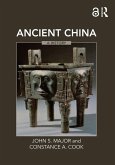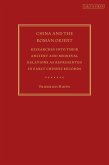"A lucid, intelligent, and lively summation ... an appetizing and stimulating introduction to the study of man's early civilizations." Science
This fascinating, lively study praised by the American Historical Review as "a valuable introduction, perhaps the best available in English, to the ancient Near Eastern civilizations" is essential reading for history students and for anyone interested in the development of Western civilization. The author, who was director of the Center of Semitic Studies at the University of Rome, undertook the study in order to make sense of several enormously important discoveries from the mid-twentieth century including the discovery of Ugarit, a Syrian city that flourished for 4,000 years; the unearthing of Mari, an equally important city of ancient Mesopotamia; and the discovery of the Dead Sea Scrolls.
Professor Moscati begins with a chapter on the "Oriental Renaissance" and goes on to examine the Sumerians, Babylonians, Assyrians, Egyptians, Hittites, Hurrians, Canaanites, Aramaeans, Israelites, and Persians, before offering, in the final chapter, a synthesis of Near Eastern accomplishments in politics, society, literature, and the arts. His conclusion is that "the civilizations of the ancient Orient [were] a tremendous human experience ... without which another, subsequent civilization would not be conceivable." One of the great pleasures of this intriguing book is its delightful sampling of illustrative quotations from primary sources some from the Bible and many others (often with strikingly biblical intonations) from the little-known writings of Sumer, Egypt, Hurria, and the other great civilizations that prefigured Greece and Rome.
This fascinating, lively study praised by the American Historical Review as "a valuable introduction, perhaps the best available in English, to the ancient Near Eastern civilizations" is essential reading for history students and for anyone interested in the development of Western civilization. The author, who was director of the Center of Semitic Studies at the University of Rome, undertook the study in order to make sense of several enormously important discoveries from the mid-twentieth century including the discovery of Ugarit, a Syrian city that flourished for 4,000 years; the unearthing of Mari, an equally important city of ancient Mesopotamia; and the discovery of the Dead Sea Scrolls.
Professor Moscati begins with a chapter on the "Oriental Renaissance" and goes on to examine the Sumerians, Babylonians, Assyrians, Egyptians, Hittites, Hurrians, Canaanites, Aramaeans, Israelites, and Persians, before offering, in the final chapter, a synthesis of Near Eastern accomplishments in politics, society, literature, and the arts. His conclusion is that "the civilizations of the ancient Orient [were] a tremendous human experience ... without which another, subsequent civilization would not be conceivable." One of the great pleasures of this intriguing book is its delightful sampling of illustrative quotations from primary sources some from the Bible and many others (often with strikingly biblical intonations) from the little-known writings of Sumer, Egypt, Hurria, and the other great civilizations that prefigured Greece and Rome.
Dieser Download kann aus rechtlichen Gründen nur mit Rechnungsadresse in A, D ausgeliefert werden.
Es gelten unsere Allgemeinen Geschäftsbedingungen: www.buecher.de/agb
Impressum
www.buecher.de ist ein Internetauftritt der buecher.de internetstores GmbH
Geschäftsführung: Monica Sawhney | Roland Kölbl | Günter Hilger
Sitz der Gesellschaft: Batheyer Straße 115 - 117, 58099 Hagen
Postanschrift: Bürgermeister-Wegele-Str. 12, 86167 Augsburg
Amtsgericht Hagen HRB 13257
Steuernummer: 321/5800/1497
USt-IdNr: DE450055826
Bitte wählen Sie Ihr Anliegen aus.
Rechnungen
Retourenschein anfordern
Bestellstatus
Storno









